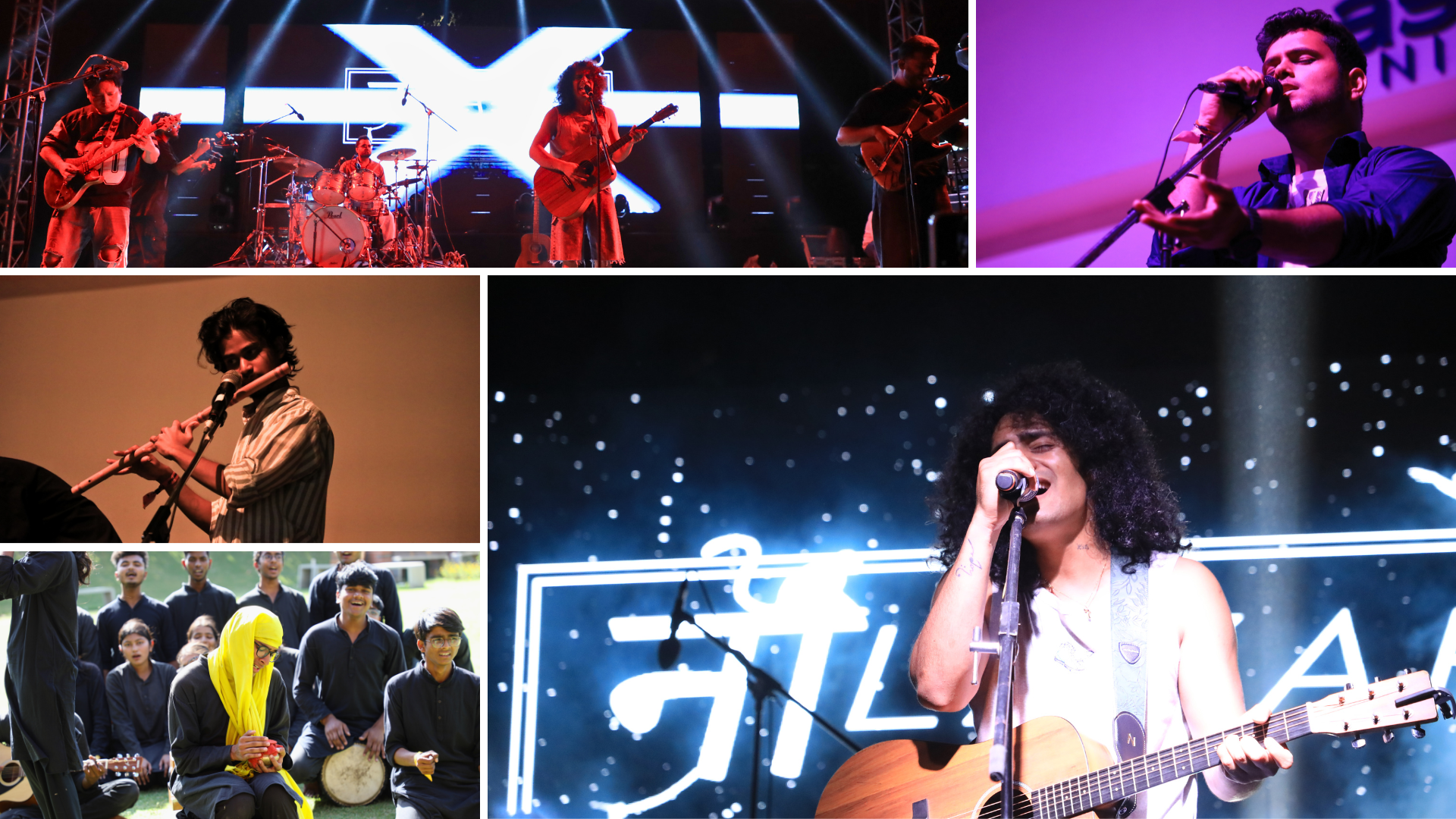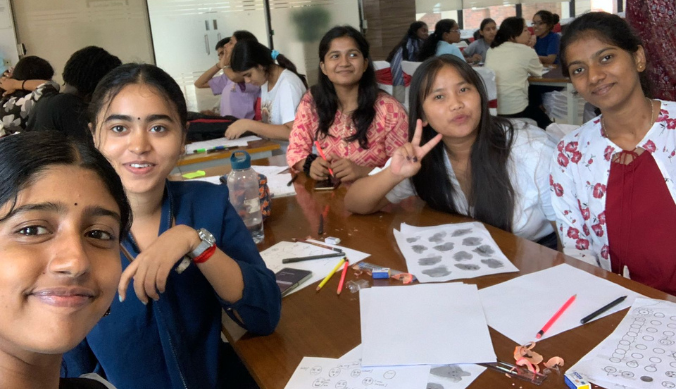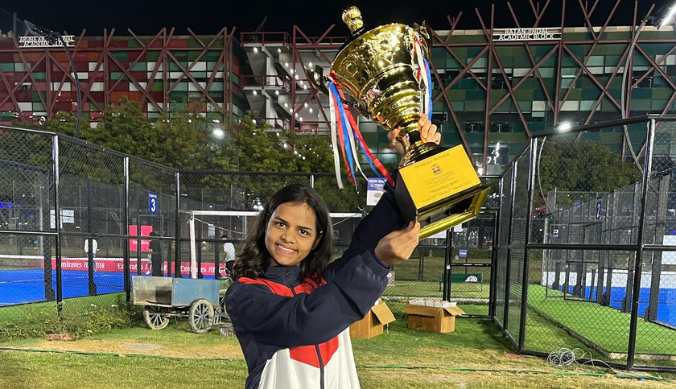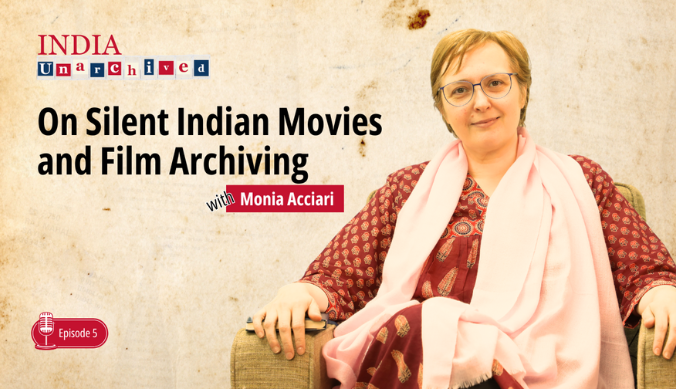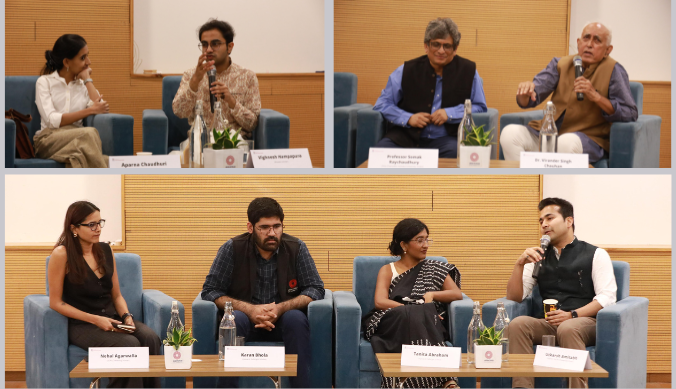Ashoka Literature Festival 2025: A Celebration of Literature, Art, and Music
This edition featured International Booker Prize-winning British translator Deborah Smith, the acclaimed translator of The Vegetarian by Korean author Han Kang.
The Ashoka Literature Festival (ALF) returned this year with an expanded lineup of events, bringing together renowned writers, artists, and performers to celebrate literature and the arts. This edition featured International Booker Prize-winning British translator Deborah Smith, the acclaimed translator of The Vegetarian by Korean author Han Kang, who shared insights into the challenges and artistry of literary translation and celebrated Indian writer Ruchir Joshi, who discussed his newly published book The Great Eastern Hotel.
The impressive line-up included a session on Literature and the Archive: An Immersive Exhibit by the Ashoka Archives team, a Writing Queer(ly) session with Kinshuk Gupta, Enakshi Nandi, and Arunima Tharaja, the ALF Open Mic, The ALF Film Festival, and a session on Somewhere in Sonipat: Site/Cite-ing History, Memory, and Literature with Ekta Chauhan, Aneesh Sriram, and Sanchit Toor.
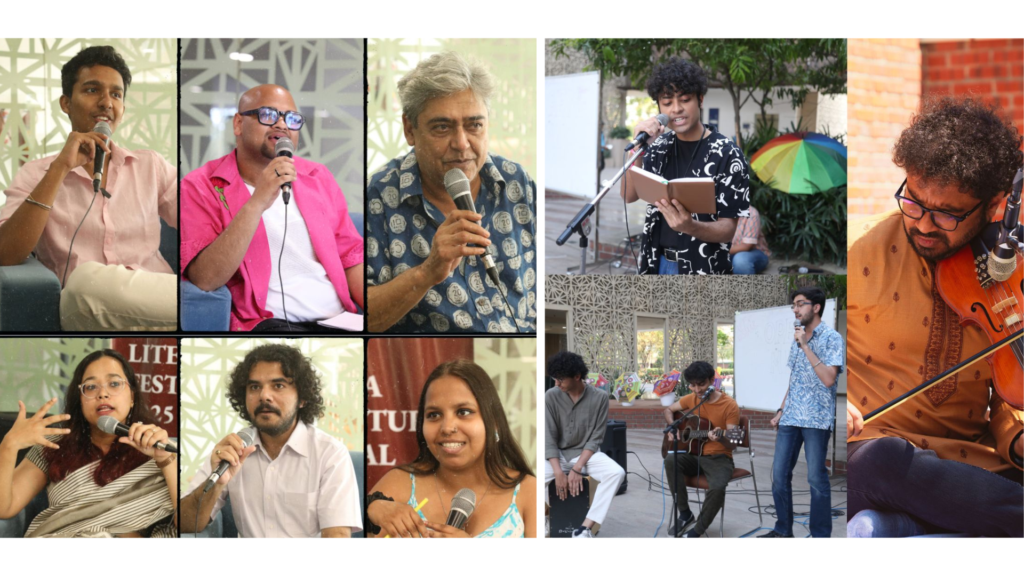
Other distinguished speakers included Ashoka student Ishan Shanavas, renowned author Chitra Banerjee, and artist Malvika Raj. Adding a melodic touch to the festival, the legendary band Indian Ocean performed, creating an unforgettable experience for all attendees.
Booker Prize-winning Translator Deborah Smith at Ashoka University
The Ashoka Centre for Translation had the honour to host Deborah Smith, the translator of the Nobel Prize-winning Korean author Han Kang’s work, from 19th to 21st March 2025. Smith is also the co-winner, with Kang, of The International Booker Prize 2016 for The Vegetarian. On 19th March, she was in conversation with Arunava Sinha, Professor of Creative Writing and Centre Co-director, about the founding of Tilted Axis Press—an independent publisher of contemporary literature from the global south with a focus on alternatives to hierarchisation in translation.
During the talk, she discussed the importance of independent publishers that champion unconventional and translated literature, the challenges and energies that shape such ventures, and their role in the literary marketplace and cultural landscape. She also spoke of her encounter with South Asian fiction, in particular, through Mai, a novel by Geetanjali Shree (also author of the 2022 International Booker Prize-winning Tomb of Sand in Daisy Rockwell’s translation), translated from the original Hindi by Nita Kumar.
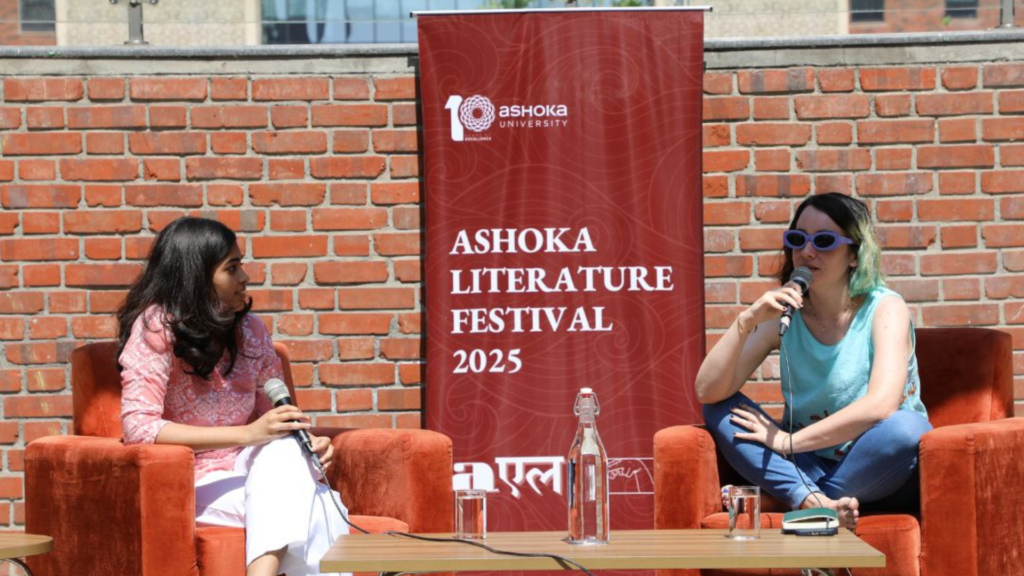
On 20th March, two events were organised. What a Heavy Snow: On Han Kang’s Literature brought Smith into conversation with two faculty members from the Department of English, Mandakini Dubey and Huzaifa Omair Siddiqi. This conversation explored the affective uniqueness of Han Kang’s writing. Drawing on her extensive experience as the translator of The Vegetarian, Human Acts, The White Book, and Greek Lessons (with Emily Yae Won), Smith reflected on Kang’s literary world.
To start off, Professor Dubey talked about The Vegetarian and Smith’s interpretation of the subtle and overt gendered desire and violence in the text as well as about diagnostic readings of the text. This was followed by Professor Siddiqi’s questions on interpretive violence in Human Acts and the impact of the second-person narrative of the text. After this, the floor was opened to the audience, and a packed and attentive crowd asked questions, among other things, on violence in translation and the cultural differences that animate translation.
Later that evening, Smith conducted a live translation lab, working through an unseen text in real-time, offering insights into the intricacies of her translation process. She began with an already translated poem, screening a document where each translated line had been annotated with her reflections on the translation as she walked the audience through her translatory sensibilities as well as the stylistic and semantic choices involved. Following this, she picked a poem at random from a book of Korean poems gifted to her by a friend and translated it in front of a rapt audience. On Friday, 21st March, Smith inaugurated the Ashoka Literature Festival with a conversation on translation and its reception, reading cultures, and the global circulation of literature. Smith’s visit to Ashoka University was a rare and enriching opportunity to engage with the art and politics of translation, offering invaluable insights into the challenges, ethics, and creative possibilities that shape literary landscapes both at home and abroad.
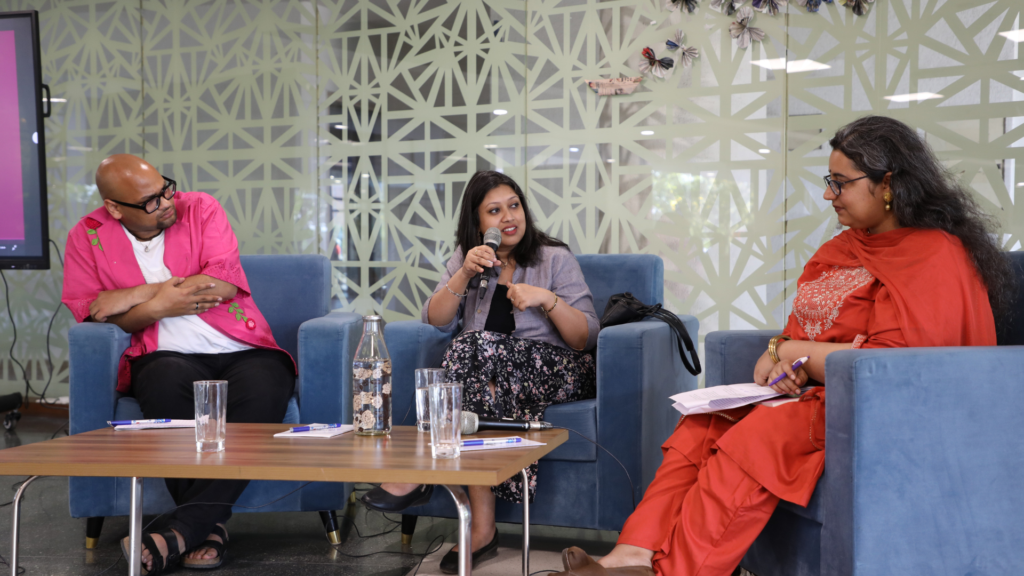
Writing Queer(ly)
The Centre for Studies in Gender and Sexuality collaborated with the Festival to host an exciting conversation on Writing Queer(ly), where authors Kinshuk Gupta and Enakshi Nandi spoke to moderator and CSGS Postdoctoral Fellow Dr Arunima Theraja about queer practices of writing and the conundrum of English as the language of queer writing in India. After an engaging back and forth, the audience asked questions about writing subversively, and how to maneuver depictions of queer characters in their own work.
Ruchir Joshi’s ‘The Great Eastern Hotel’
Ruchir Joshi, an accomplished writer, filmmaker, and journalist, best known for his debut novel The Last Jet-Engine Laugh (2001), shared insights into the journey of writing his newly published historical fiction novel, The Great Eastern Hotel. Set in colonial Calcutta during World War II, the novel has been a labour of love, taking nearly 20 years to complete. Joshi discussed the different angles of writing to finish the book, starting from when he was living between London and Delhi, later shifting between London and Calcutta during 2007-2008, with occasional periods spent in Delhi.
It was post-COVID-19 when the novel’s final version was completed in Berlin. Throughout the writing journey, Joshi explored Calcutta from multiple perspectives, capturing its essence across the 1930s, 40s, and 50s. Despite the evolving backdrop, Calcutta remains a constant presence in his narrative, even as the city itself transforms politically and culturally.
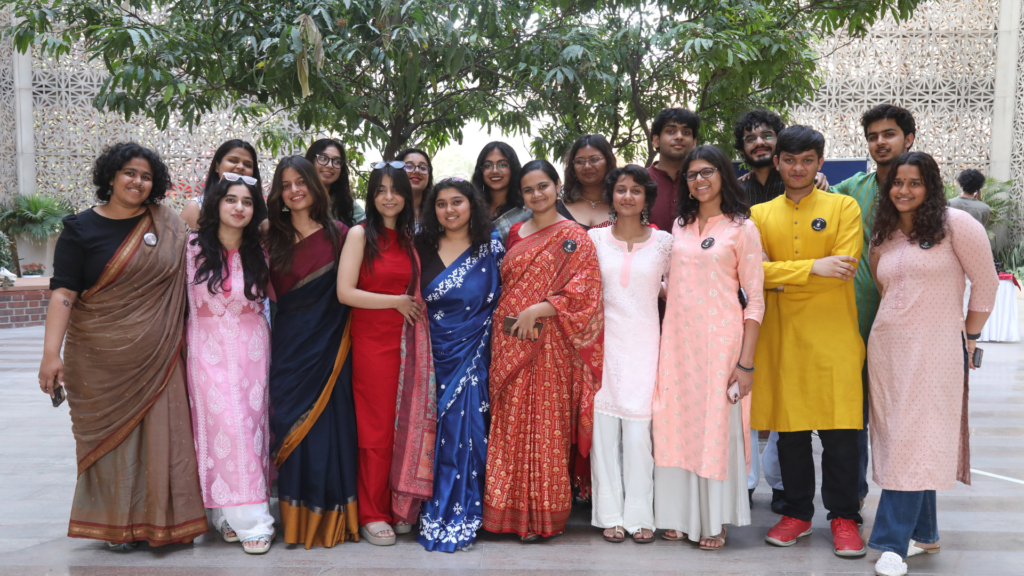
Cozy Nook Library Literary Prize
Founded in 2016 in Bangalore, Cozy Nook Library focuses on children’s literature and operates three branches, including one in a community centre in a Bangalore slum to support literacy among underprivileged children. On its 9th anniversary this year, in collaboration with ALF, Cozy Nook introduced a Literary Prize focused on graphic narratives. Participants were challenged to “push convention and create something new” using a selection of panels as frames or placeholders, and fill it up with art, photography, or writing- or a combination of their choice. The winners were Hrishita, Shereen Rana, and Stavan Mehta, who were celebrated for their innovative storytelling.
Vistaar x ALF Open Mic
In collaboration with Vistaar, on the final day of ALF, students from Ashoka University presented a delightful showcase of various art forms during the open mic session. Students with different backgrounds participated with some sharing their original pieces such as poems, accompanied by cozy and soothing music that creates a vibrant yet peaceful atmosphere. Some participated by singing together with their friends bringing a lively energy to the event. The combination of peaceful readings of poems and spirited performances made the evening truly unforgettable
Book Launch: The Light of Wilder Things by Ishan Shanavas
Ishan Shanavas (ASP 2025) had the honour of launching his book The Light of Wilder Things at ALF. The book, which captures his journey in the wilderness and explores India’s rich biodiversity, was sold out completely. The book was the fruition of 2 years of hard work of the young naturalist. During the book launch at ALF, Ishan talked about the story behind the book, the need for such a book, and what he hoped it would achieve. He also spoke about the writing process in the hope that it inspires young writers to take up similar projects of their own.
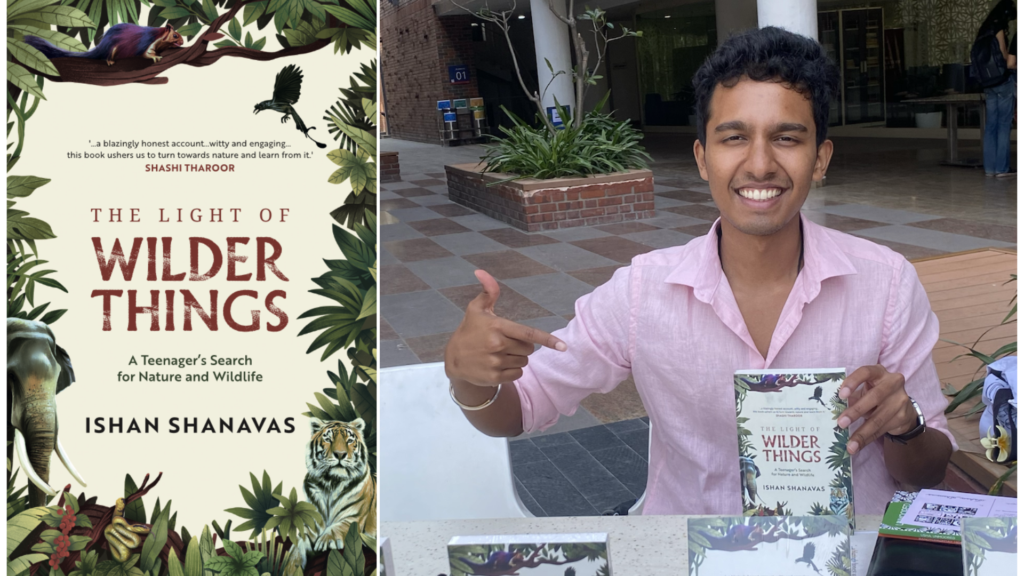
In Conversation with Chitra Banerjee Divakaruni
As part of the Ashoka Literature Festival, renowned author Chitra Banerjee Divakaruni engaged in a fascinating discussion with Farishta Anjirbag and Akshay Tahiliani. Speaking from Houston, Banerjee shared insights into her literary journey, the themes that inspire her, and her evolution as a writer.
A celebrated novelist, poet, and professor, Banerjee has authored 21 books, including The Palace of Illusions, The Forest of Enchantment, and Independence. Though she never initially planned to be a writer, her experiences as an immigrant and a South Asian Indian woman profoundly shaped her storytelling. Her early works focused on contemporary themes before she transitioned into retelling epics, a shift that required deep research and learning. Throughout the discussion, she reflected on the recurring theme in her books, exploring what women are “allowed” or “not allowed” to do in society, a subject that continues to resonate with readers globally.
Indian Ocean’s Electrifying Performance: A Night to Remember
As part of the Ashoka Literature Festival, Indian Ocean, one of India’s most iconic fusion rock bands, delivered a mesmerising performance that left the audience spellbound. The night was a perfect blend of music, poetry, and deep-rooted cultural influences, showcasing the band’s ability to seamlessly weave history and tradition into their contemporary sound.
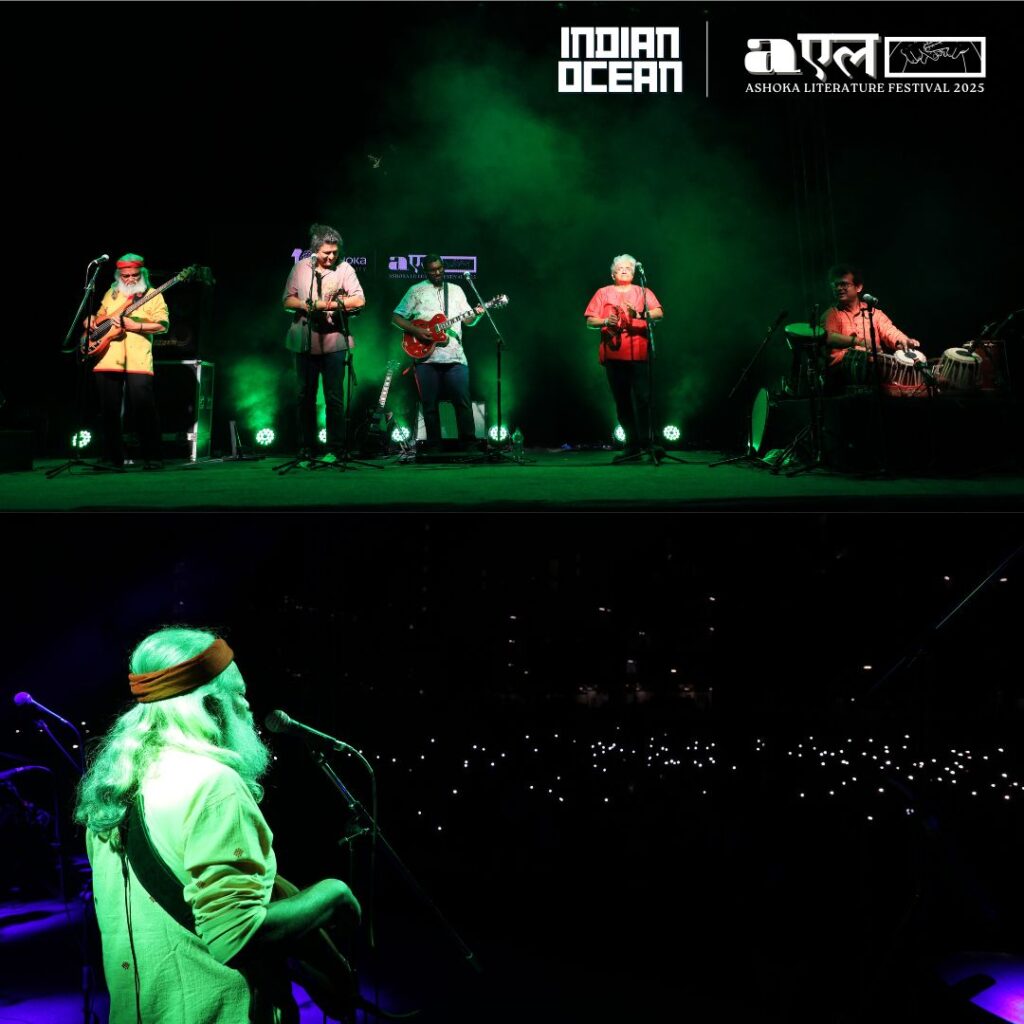
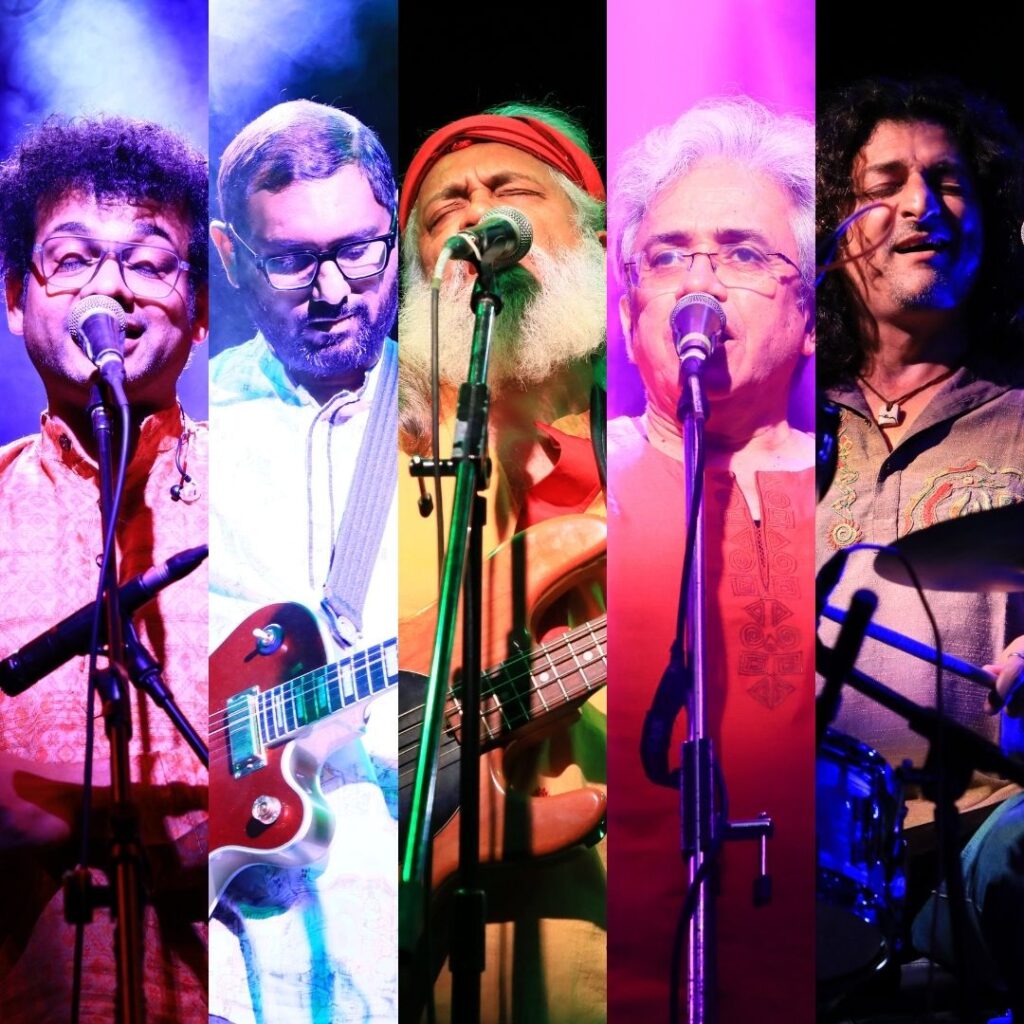
The evening began with “Hari Om,” a song entirely in Sanskrit, marking a unique and deeply resonant start to the concert. With a theme rooted in the timeless bond between students and teachers, this song is said to be thousands of years old. This was followed by the band’s signature style of reinventing historical and philosophical poetry through music. They performed “Chadariya Jhini Re Jhini,” a soulful interpretation of the 500-year-old composition by Sant Kabir. The crowd swayed to the deeply moving verses, enraptured by the blend of Kabir’s timeless poetry and Indian Ocean’s stirring instrumentation.
Taking the audience forward in time, the band transitioned to a piece inspired by contemporary poetry, performing the evocative lines: “Tu kisi rail si gujarti hai, main kisi pul sa thartharata hoon.” This 100-year leap in theme, while maintaining the poetic and philosophical depth of their setlist, added a modern perspective on love and existence. The concert continued with “Jadu Maya,” an original composition written specifically for the Indian Ocean. It was a sonic spectacle that showcased the band’s unique ability to blend Indian folk, classical, and rock elements.
The final highlight of the night was a song by Piyush Mishra, described as an anthem of disillusionment with society, “Sarpat Aaya.” The raw energy of the performance, combined with the piercing social commentary, created a powerful ending to the set.
As the last notes of Bandeh faded, the audience roared with appreciation, demanding an encore. Students and faculty alike stood in ovation, cheering for the band that had taken them on a journey through time, poetry, and philosophy. It was an evening where literature met music and tradition met rebellion. It was truly an unforgettable night at Ashoka University.
Ghazal Night: A Melodic Finale
As the stars emerged, the Ashoka Literature Festival (ALF) concluded with a mesmerising Ghazal Night, leaving the audience spellbound. The evening began with the soulful music of the Indian Ocean and gracefully transitioned into a night of rhythmic ghazals, filling the air with poetic charm. ALF members and students immersed themselves in the melodies, celebrating three days of literary brilliance. As the festival wrapped up, attendees cherished the unforgettable moments, carrying forward the warmth of shared experiences and artistic expression. ALF 2025 may have ended, but its echoes will resonate in our hearts for a long time.
Written by Naw Blut Eh Khue (ASP’25) and Chanda Kumari (ASP’25)
Study at Ashoka









